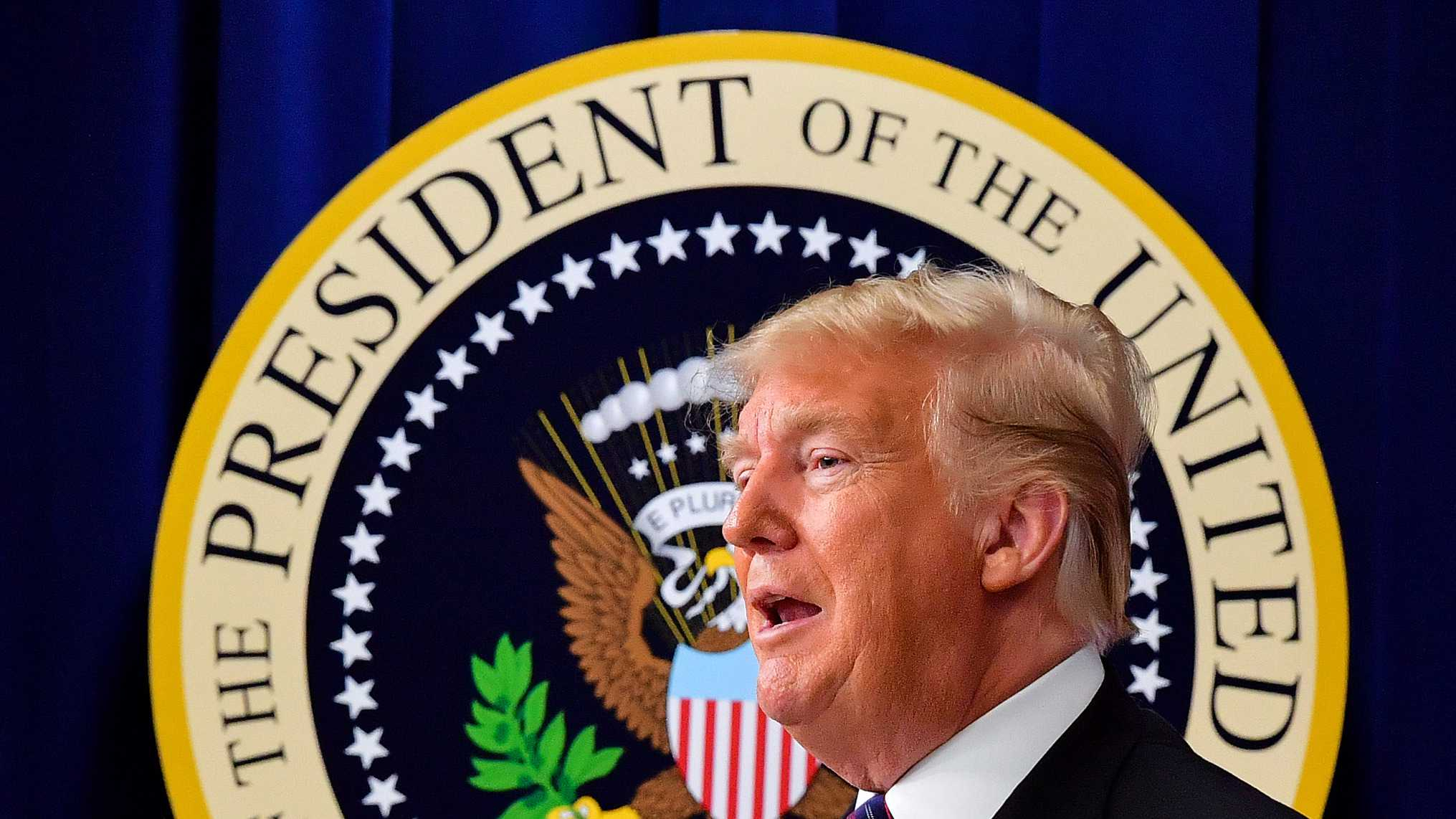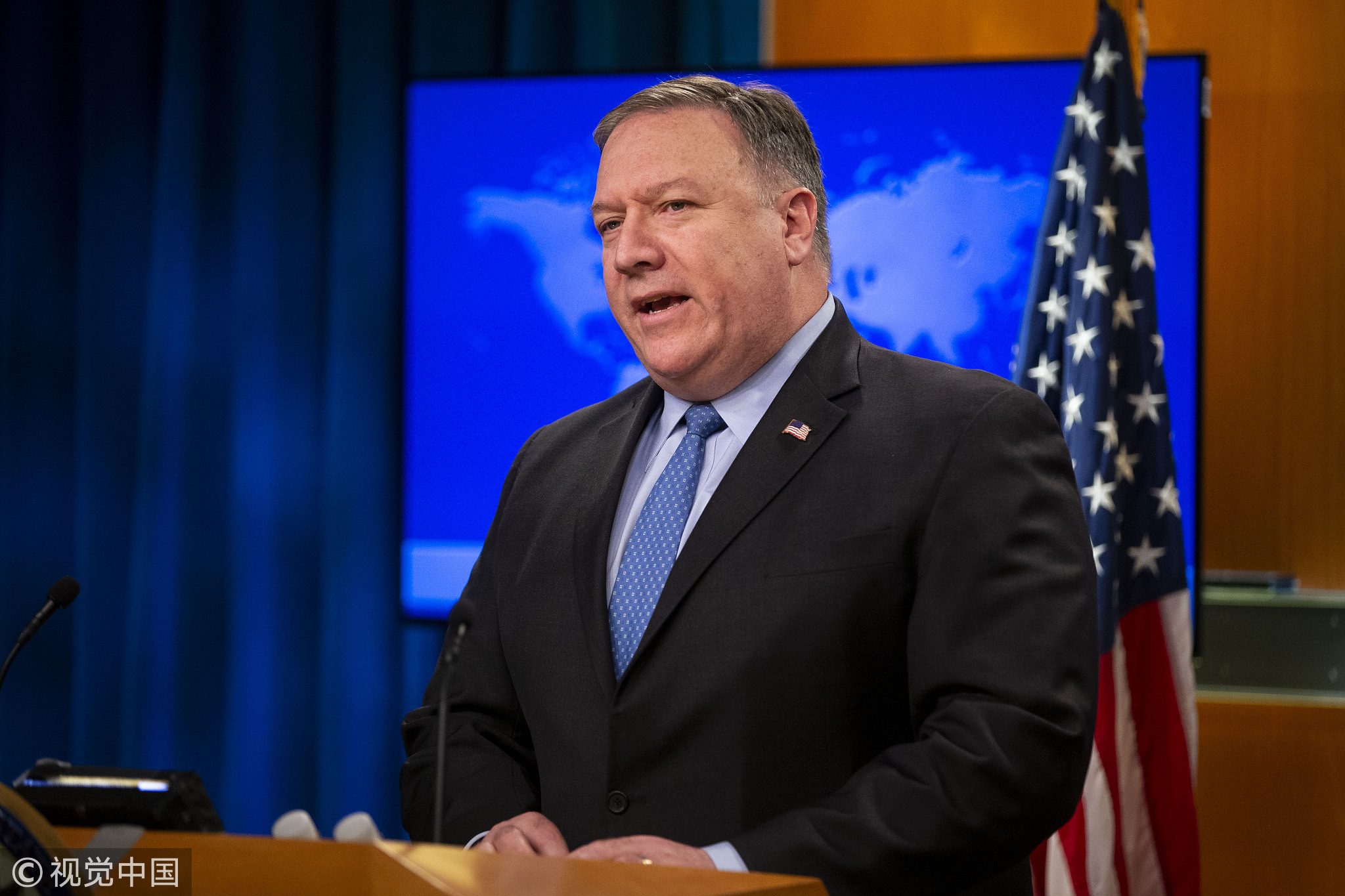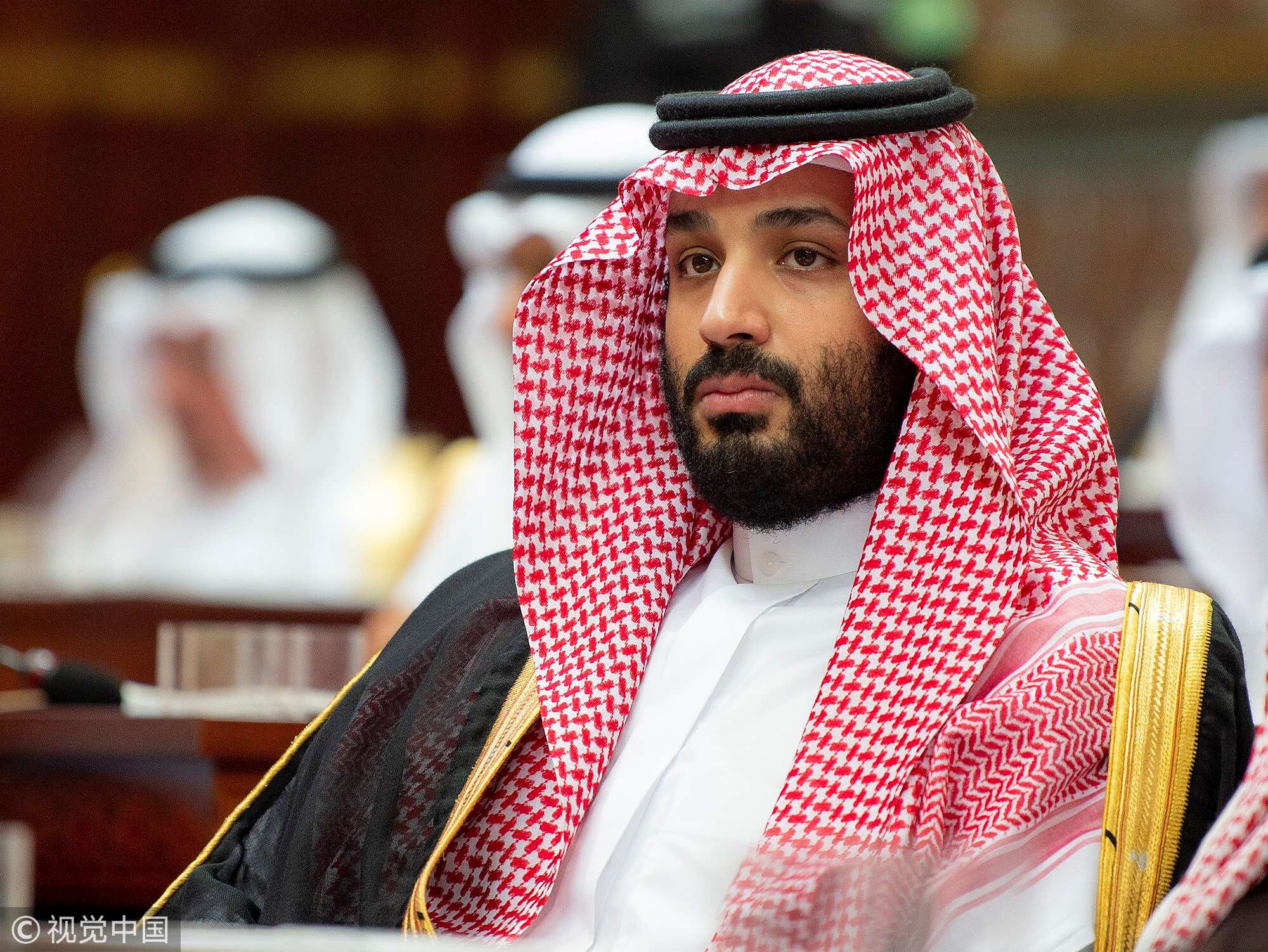
Opinions
09:46, 22-Nov-2018
Opinion: Trump lays bare American hypocrisy over Saudi Arabia
Updated
09:17, 25-Nov-2018
Tom Fowdy

Editor's note: Tom Fowdy is a UK-based political analyst. The article reflects the author's views, and not necessarily those of CGTN.
Commentators around the world have been left astounded in response to President Donald Trump's recent White House statement concerning the killing of Washington Post columnist Jamal Khashoggi and Crown Prince Mohammad bin Salman. Without a shred of dignity or diplomatic shrewdness, the statement effectively sought to sweep the significance of the killing under the carpet by erratically and unashamedly emphasizing the importance of the Saudi monarchy to as many of his domestic and foreign policy agendas as possible, in tandem with a marked and bizarre demonization of Iran.
While the statement was scolded by commentators and political observers around the world, U.S. Senator and Foreign Policy Committee Leader Bob Corker even branding Trump a “public relations firm” for the kingdom, nevertheless, we should not be too surprised. As much as such a response is callous and makes a mockery out of America on the world stage, it is nevertheless honest in an unsavory way. For all the disgust expressed by other more center leaning politicians in America, the statement reveals a long and unspoken truth, that self-interest ultimately “Trumps” principle in American foreign policy.

Mike Pompeo, U.S. secretary of state, speaks in the briefing room at the State Department in Washington, DC, U.S., November 20, 2018. /VCG Photo
Mike Pompeo, U.S. secretary of state, speaks in the briefing room at the State Department in Washington, DC, U.S., November 20, 2018. /VCG Photo
Those who criticize Trump's statement might point out the obvious lack of principles or ethic manifest within it, but for all, a more mainstream administration may have been more dignified in its official response, how much different would it be in practice? When Trump emphasizes the role of Saudi Arabia as a strategic ally of the United States and a cornerstone of their interests in the Middle East, he isn't lying, even if there is obvious hypocrisy or double standards involved.
It is a cozy relationship that relates back to the end of World War II, the kingdom serving as a cornerstone of America's regional preferences and interests. The Saudis uphold Western access to petroleum, as well as working to contain the rise of revolutionary states hostile to Washington's preferences.
As a result, while there is quite rightful condemnation over Trump's response, the bigger point is missed that really nothing is new in his statement concerning what America is doing. Because of this strategic value, the Saudi kingdom has long been a crystal-clear exemption to the Western regime of “human rights” and pressures for liberalization. While Washington demonizes countries over their political systems, the long-standing U.S. relationship with this country acts as a reminder that these criticisms are applied selectively and according to preference rather than principle.

Saudi Crown Prince Mohammed bin Salman attends a session of the Shura Council in Riyadh, Saudi Arabia, November 19, 2018. /VCG Photo
Saudi Crown Prince Mohammed bin Salman attends a session of the Shura Council in Riyadh, Saudi Arabia, November 19, 2018. /VCG Photo
Trump couldn't be clearer about that. His administration on one hand repeatedly condemns Iran as being “brutal,” a “dictatorship,” “oppressive” and backward, while on the other hand readily ignoring the fact Saudi Arabia is little different and lavishing praise on the country in the name of “America First.”
But we shouldn't stop there, although the Obama administration was in its final year somewhat unhappy with Riyadh over given issues, he never found the political capital to severe ties or openly criticize their political system. It has always been the same, from administration to administration. Saudi Arabia is an exception to the “rules” frequently used to attack others.
On this note, the only true difference is that Trump is louder, clearer and more unrefined on expressing the importance of the kingdom to Washington. Rather than saying “they buy our guns and fight Iran,” another administration may have performed a number of symbolic acts of disapproval, such as recalling the Saudi Ambassador, suspending diplomatic relations or so on, but little in the long run would have been different.
This in mind, let us not lose sight that Khashoggi is not the only issue here at stake. Critics of the president's response focus solely on this, yet as horrible as a murder it was, there was little interest otherwise in the mainstream concerning the Saudi's three-year carpet bombing of Yemen and its civilians, or its decades-long role in spreading fanatical religious ideology throughout the Middle East, which proved fertile soil for terrorism. None of these issues have mattered a great deal.
Thus, while Khashoggi's killing may have crossed a red line for many Americans, for the main policymakers it ultimately won't, because there is no alternative for their interests in this region. Trump set out what America gains, even if it sounded stupid and self-defeating. People say his words are obscene and they certainly are, but really, it's just the unspoken truth of decades' worth of foreign policy. Preference has long subordinated principle in Washington and with Trump's statement, never has there been a more marked demonstration of that. Don't expect much to change.
(If you want to contribute and have specific expertise, please contact us at opinions@cgtn.com.)

SITEMAP
Copyright © 2018 CGTN. Beijing ICP prepared NO.16065310-3
Copyright © 2018 CGTN. Beijing ICP prepared NO.16065310-3